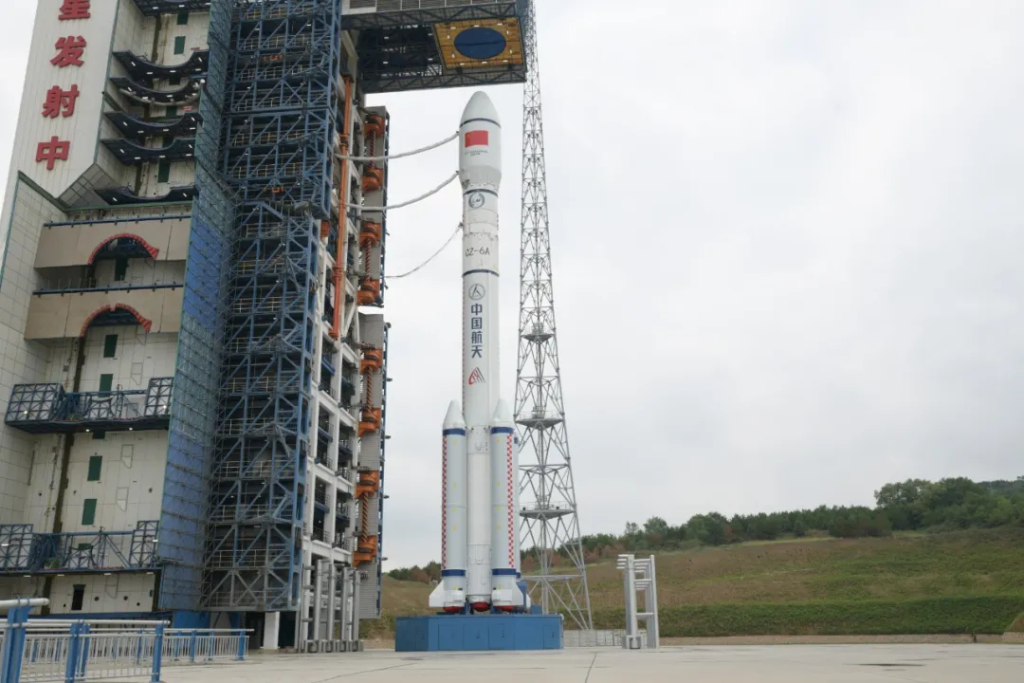The head of U.S. Space Command hopes the next time China launches a rocket that leaves behind long-lived space debris, Beijing will give Washington a heads-up, rather than leaving the U.S. to discover the orbital mess on its own.
Speaking at a Mitchell Institute for Aerospace Studies event held at Peterson Space Force Base, Colo., on Aug 28, Gen. Stephen N. Whiting referenced two recent incidents involving Chinese space debris as cause for concern and better communication moving forward.
“We have just seen the launch of their version of a Helio constellation that left 300 plus pieces of debris on orbit—a Long March 6A,” Whiting said. “Less than two years ago, they had another one, it put over 500 pieces of long-lived debris. … I hope next time there’s a rocket like that, that leaves a lot of debris, it’s not our sensors that are the first to detect that, but we’re getting communications that help us understand that, just like we communicate with others.”
The most recent incident involving a Long March 6A rocket took place earlier this month, when the launch vehicle carried the first 18 satellites for a planned communications constellation to rival Starlink. The rocket broke apart in low-Earth orbit (LEO) days later, spreading debris and raising concerns among experts. A private space tracking company reported that the breakup potentially produced more than 900 debris fragments.

Whiting noted that the debris originated from the rocket’s upper stage after the satellites were released, indicating the mission was “overall successful.” However, higher altitudes mean the debris will remain in orbit longer.
“We certainly don’t want to see that kind of debris,” added Whiting.
Debris in orbits below 600 kilometers (373 miles) usually re-enters Earth within a few years, while at 800 km, it might take centuries to decay. With more and more satellites in LEO and long-lived debris from careless launches, the odds of collisions keep climbing.
According to retired Gen. Kevin Chilton, Explorer Chair at the Mitchell Institute’s Spacepower Center of Excellence, the U.S. once faced similar issues with high-altitude debris but began venting fuel and gases from rocket stages before they enter orbit. This practice reduced debris and the risk of breakup, and Russia adopted it soon after. Whiting said it is currently unknown whether China is using this method.
“For decades now, the U.S. has so cared about the space domain that we have made available the vast majority of the tracking data that we have, free for the world,” said Whiting. “Every day, we screen every active satellite against all that debris, and we provide notifications out to everyone, including the Chinese and the Russians… because we don’t want satellites to run into pieces of debris and create more debris.”
The rapid development of counterspace capabilities and the surge in satellite deployments by China and Russia continue to be a major concern for how the U.S. does space domain awareness. Vice Chief of Space Operations Gen. Michael A. Guetlein noted that these countries’ recent actions demonstrate their intent to operate in an unsafe manner in the domain.
“They are creating a lot of debris and orbit that we’re having to fly around, or putting things like the International Space Station at risk,” Guetlein said at the AFCEA/INSA Intelligence and National Security Summit in Rockville, Md., on Aug 28. “Not even having a concern for the safety of their own cosmonauts, if that is not unsafe and unprofessional, I don’t know what is.”
In November 2021, Russia conducted an anti-satellite missile test that created a large amount of debris in low-Earth orbit, posing a risk to the International Space Station and prompting precautionary measures from the crew. In addition, Moscow also experienced a series of coolant leaks on its spacecraft in recent years. While there are no scheduled talks with Russia on space development, hopes are high for more active communication with Beijing on domain warnings.
“We provide these notifications to the Chinese, and over the last year, we’ve seen a couple times that they’ve given us a few notifications back, I think that’s positive,” said Whiting. “We do not have any talks with Russia planned.”
